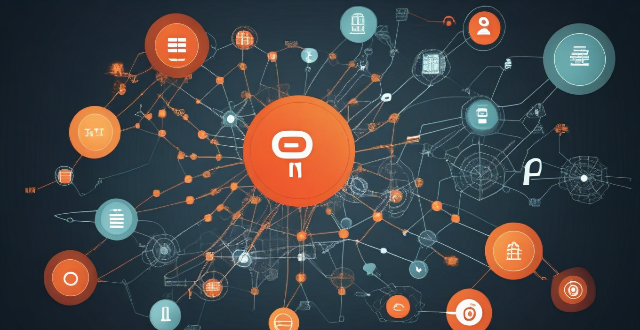Working with blockchain technology requires technical skills in programming languages, distributed systems, cryptography, networking, data structures and algorithms, database management, cloud services, version control, testing and debugging, and DevOps. It also demands business acumen in project management, market analysis, financial literacy, and business development. Legal and ethical understanding is crucial for regulatory compliance, privacy and security, ethical considerations, and intellectual property. Communication skills are needed for clear communication, documentation, and presentation. As blockchain evolves, professionals must stay updated with advancements and best practices.

Skills Needed to Work with Blockchain Technology
Working with blockchain technology requires a unique set of skills that combine technical expertise, business acumen, and an understanding of the legal and ethical implications of this emerging field. Here is a comprehensive list of skills needed to work with blockchain technology:
Technical Skills
1. Programming Languages: Proficiency in programming languages such as Solidity (for Ethereum smart contracts), JavaScript, Python, Java, or C++ is essential.
2. Distributed Systems: Understanding how distributed systems work, including consensus algorithms like PoW (Proof of Work) and PoS (Proof of Stake), is crucial.
3. Cryptography: Knowledge of cryptographic concepts like public and private keys, hash functions, and digital signatures is vital for securing transactions.
4. Networking: Familiarity with networking protocols and how data is transmitted over decentralized networks is important.
5. Data Structures and Algorithms: A strong foundation in data structures and algorithms helps optimize blockchain performance.
6. Database Management: Experience with databases, especially NoSQL databases like LevelDB or RocksDB used in blockchains, is beneficial.
7. Cloud Services: Familiarity with cloud services like AWS, Azure, or Google Cloud can be useful for deploying and managing blockchain applications.
8. Version Control: Proficiency in version control systems like Git is necessary for collaborative development.
9. Testing and Debugging: Skills in automated testing and debugging tools are essential for ensuring the reliability of blockchain applications.
10. DevOps: Understanding DevOps practices can help streamline the development and deployment process.
Business Acumen
1. Project Management: Ability to manage projects, coordinate teams, and meet deadlines is crucial.
2. Market Analysis: Understanding market trends and being able to analyze the potential impact of blockchain solutions on various industries is valuable.
3. Financial Literacy: Basic knowledge of finance and economics can help navigate the world of cryptocurrencies and token economies.
4. Business Development: Skills in negotiation, client relations, and partnership building are important for advancing blockchain initiatives.
Legal and Ethical Understanding
1. Regulatory Compliance: Awareness of the legal frameworks and regulatory requirements affecting blockchain technologies is essential.
2. Privacy and Security: Understanding privacy laws and best practices for securing sensitive data is critical.
3. Ethical Considerations: Recognizing the ethical implications of blockchain applications, such as issues related to transparency, accountability, and social impact, is important.
4. Intellectual Property: Familiarity with intellectual property rights, including patents and copyrights, is necessary when developing new blockchain solutions.
Communication Skills
1. Clear Communication: The ability to explain complex technical concepts to non-technical stakeholders is essential.
2. Documentation: Proficiency in writing clear documentation for code, processes, and user manuals is important.
3. Presentation Skills: Being able to present ideas and updates effectively, both verbally and visually, is beneficial for team collaboration and client interactions.
In summary, working with blockchain technology requires a blend of hard technical skills, soft skills like communication and project management, and a deep understanding of the legal and ethical landscape surrounding this innovative field. As blockchain continues to evolve, these skills will likely shift and expand, requiring professionals to stay up-to-date with the latest advancements and best practices.